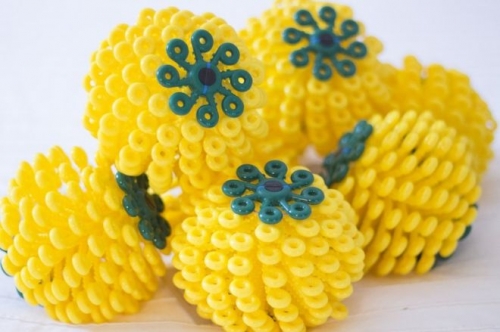Plastic Dilemma

November 9,2018
By ELEANOR CHAMBESHI,LUSAKA
BBC reports,concern is mounting over the volume of plastics in our oceans and, in particular, how tiny particles of plastic and other synthetic materials are infiltrating every part of our ecosystem. Can technology help address the problem?
In October 2009, windsurfing teacher Rachael Miller went to help clean up an island off the coast of Maine in the north-east of the US.
There had been a heavy storm and "we found the beach covered in debris", she says, mostly washed up plastic fishing gear.
Her husband was incensed. "Marine debris is one of the few things that really make me angry," he said.
So Ms Miller, who had studied marine archaeology, decided to devote herself to keeping plastics from ever reaching the ocean.
In April, she began selling a special gadget for capturing those tiny bits of synthetic material - called microfibres - that come off our clothes in the wash.
Four inches (10cm) in diameter and made from recycled rubber, the Cora Ball imitates the structure of coral in the ocean. While it doesn't catch everything, the company says it captures between a quarter and a third of microfibres in every wash.
Customers on the crowd funding site Kickstarter pre-ordered 15,500 of these in 2017.
Cora Ball is one of several small start-ups working to keep microplastics and other microfibres out of the water system.
The shocking truth is that we could be ingesting 11,000 pieces of plastic a year just through eating shellfish, says Ghent University's Lisbeth Van Cauwenberghe.
It's a pollution we all contribute to when we wash our clothes.
Up to 700,000 microfibres can shed from a typical 6kg (13lb) household load, says Imogen Napper, a postdoctoral marine science researcher at the University of Plymouth in the UK.
And a sizable minority can make it into the ocean. So laundry is turning oceans into "a big plastic soup", says Ms Napper.
Introducing an additional compound to the filtration stage of treatment could remove upwards of 99% of microplastics cheaply without retrofitting a treatment centre, says Dario Mongiardi, one of the students.
Cora Ball's Ms Miller - who also runs a clean-water non-profit, the Rozalia Project - says these laundry and wastewater treatment technologies are complementary.
If just 10% of US households used Cora Ball it would keep the equivalent of 30 million water bottles from washing into public waterways a year, claims Rachael Miller.
"If you eat or drink or wear clothes or use objects," she says, "this affects you."
By ELEANOR CHAMBESHI,LUSAKA
BBC reports,concern is mounting over the volume of plastics in our oceans and, in particular, how tiny particles of plastic and other synthetic materials are infiltrating every part of our ecosystem. Can technology help address the problem?
In October 2009, windsurfing teacher Rachael Miller went to help clean up an island off the coast of Maine in the north-east of the US.
There had been a heavy storm and "we found the beach covered in debris", she says, mostly washed up plastic fishing gear.
Her husband was incensed. "Marine debris is one of the few things that really make me angry," he said.
So Ms Miller, who had studied marine archaeology, decided to devote herself to keeping plastics from ever reaching the ocean.
In April, she began selling a special gadget for capturing those tiny bits of synthetic material - called microfibres - that come off our clothes in the wash.
Four inches (10cm) in diameter and made from recycled rubber, the Cora Ball imitates the structure of coral in the ocean. While it doesn't catch everything, the company says it captures between a quarter and a third of microfibres in every wash.
Customers on the crowd funding site Kickstarter pre-ordered 15,500 of these in 2017.
Cora Ball is one of several small start-ups working to keep microplastics and other microfibres out of the water system.
The shocking truth is that we could be ingesting 11,000 pieces of plastic a year just through eating shellfish, says Ghent University's Lisbeth Van Cauwenberghe.
It's a pollution we all contribute to when we wash our clothes.
Up to 700,000 microfibres can shed from a typical 6kg (13lb) household load, says Imogen Napper, a postdoctoral marine science researcher at the University of Plymouth in the UK.
And a sizable minority can make it into the ocean. So laundry is turning oceans into "a big plastic soup", says Ms Napper.
Introducing an additional compound to the filtration stage of treatment could remove upwards of 99% of microplastics cheaply without retrofitting a treatment centre, says Dario Mongiardi, one of the students.
Cora Ball's Ms Miller - who also runs a clean-water non-profit, the Rozalia Project - says these laundry and wastewater treatment technologies are complementary.
If just 10% of US households used Cora Ball it would keep the equivalent of 30 million water bottles from washing into public waterways a year, claims Rachael Miller.
"If you eat or drink or wear clothes or use objects," she says, "this affects you."
